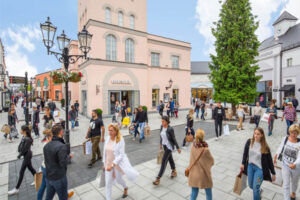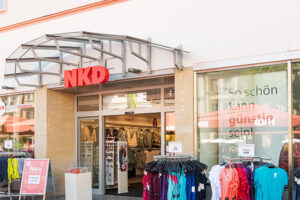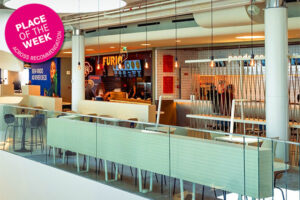NEINVER has announced it has reached agreements with 98% of the tenants across Spain, Italy, France, Germany and Poland for the first lockdown and is now under new negotiations for the closures produced during Q4. Occupancy rate was similar to previous years – 95% as at 31 December 2020 – a high percentage that proves the business resilience and the robustness of its tenants.
In total, the company signed close to 1,500 leasing agreements in 2020, of which 1,260 are tenant rent negotiations and 210 are leasing deals, including new leases and renewals despite lockdowns and restrictions.
The retail offering grew with anchor brands such as Hugo Boss, Lacoste, Puma, Intrend, Karl Lagerfeld, Swarovski, Roberto Cavalli, some of them new joiners to NEINVER’s portfolio.
The company also secured important new retailers such as Max & Moi, Lafuma, Elisabeth Biscarrat, Kids Around, Not Shy, Sinsay, Anne&Max and Burger Federation. Moreover, brands such as Pinko, The Kooples, Marc O’Polo, Salomon, O’Neill, Kappa and New Balance – with three new deals in Spain – have taken additional space, expanding throughout the portfolio. These numbers were driven largely by the leasing of Amsterdam The Style Outlets, NEINVER’s first centre in the Netherlands in cooperation with its partner Nuveen Real Estate, which opened in November with around 75% occupancy, with several new signatures being closed during the lockdown period.
“Establishing shared commitments with our tenants has always characterised NEINVER’s business model, and it has proven more important than ever during this crisis. Since the onset of the pandemic, we have approached our tenants’ situation on a case-by-case basis, offering them flexible individual solutions regarding rent relief,” says Carlos González, NEINVER’s Managing Director.
“In addition to tenant negotiations, we maintained high and challenging leasing activity along the year despite the situation. The brands’ accumulation of excess inventory has grown their interest in establishing or expanding their presence in outlet centres. But retailers are being more selective in their expansion, focusing on top locations and strong assets.”
The company’s commitment to bolstering the quality of its portfolio, upgrading its spaces and providing experiential shopping continued despite the pandemic. This included completing the refurbishment of Getafe The Style Outlets in Madrid – which involved refreshing the centre’s portfolio with around 30 new retailers – as well as the 360° refurbishment of the Spanish retail park Megapark Barakaldo in the Basque Country, owned by Grupo Lar, which has recently welcomed two experiential concepts: an indoor leisure and freestyle technification centre and an innovative virtual reality space. Moreover, in 2020 the restyling of Vicolungo The Style Outlets was finalised. Besides the facelift, the centre also enhanced its leisure offer, including a new indoor play area with professional educators for children up to 6 years and the addition of a unique 1,700 m² play area for children, “Kinder Joy of moving Park”, a recreational and motor skills development playground, the only one of its kind in Italy.
Tenant sales across the outlet portfolio
Tenant sales in the outlet portfolio registered a strong start to 2020, increasing by 7% during the first two months before the pandemic, but most of the year, centres’ trading was subject to restrictions and interrupted operations, which impacted their performance. Compared to 2019, sales across NEINVER’s outlet portfolio were negatively affected, with decreases of around 25% and 30% depending on the region and the limits on operations. All centres in Europe reopened by mid-June and operated throughout Q3 with less disruption, showing the improved performance and resilience of the outlet industry. During these months, tenant sales across NEINVER’s outlet portfolio were at the same levels as in 2019 in some assets, bouncing back as they were allowed to trade, with some centres even outperforming 2019 results and showing 15% to 20% sales growth. Further restrictions during the Christmas shopping season, with many of the company’s centres entirely or partially closed during November and December, led to a substantial decrease in sales and footfall.






